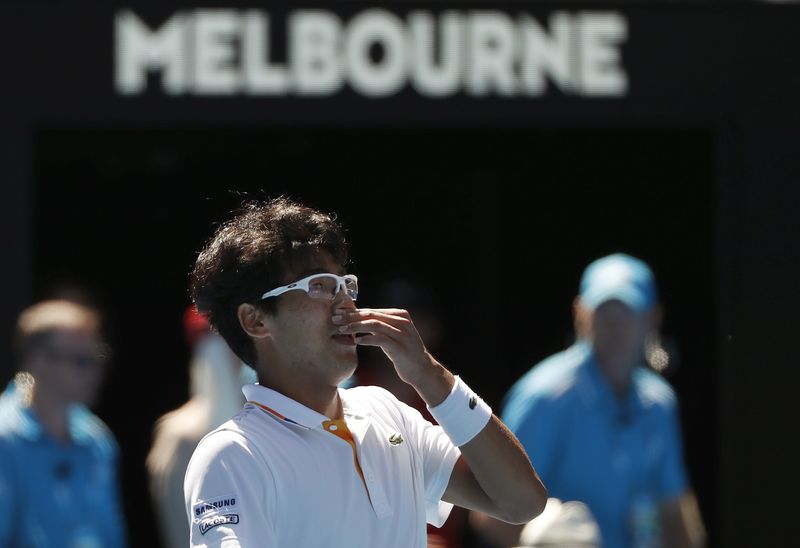 © Reuters. FILE PHOTO: Flags are pictured during the fifth round of NAFTA talks involving the United States Mexico and Canada in Mexico City
© Reuters. FILE PHOTO: Flags are pictured during the fifth round of NAFTA talks involving the United States Mexico and Canada in Mexico CityDAVOS, Switzerland (Reuters) – Canada’s foreign minister and Mexico’s economy minister struck an upbeat note on Thursday on the outlook for talks with the United States on the North American Free Trade Agreement, saying they agreed the deal needed modernizing.
The sixth and penultimate round of negotiations to update NAFTA opened in Montreal on Tuesday with time running out for Canada and Mexico to settle big differences with U.S. President Donald Trump’s administration.
Canadian Foreign Minister Chrystia Freeland said nobody was expecting a deal to be struck in the current round of talks, but Canada was approaching the negotiations with a “spirit of positive intent” and expected the same of its partners.
She said Canada had brought new creative ideas to Montreal, in particular on contentious areas such as rules of origin, which she described as “insanely complicated” in the complex negotiations over the car sector.
“It’s going to be a fun and I hope really useful and productive discussion,” she said at the World Economic Forum in Davos. “We’re prepared for every different possible outcome.”
Speaking alongside Freeland, Mexican Economy Minister Ildefonso Guajardo said the attempt to find creative solutions on NAFTA was in a much better place than a year ago.
But he said it was obvious that the 22-year old NAFTA text needed modernizing, to reflect the march of technology and the changing energy balance in North America.
“The car that we use as the base for rules of origin is the model from 1991. Look at the car today – it’s 80 pct different,” Guajardo said.
He said negotiators needed to listen to what Trump had promised to achieve in NAFTA reform, and try to interpret that in a way that did as little damage as possible, with a scope and time frame that was manageable for business.
“The president is right in saying that in North America, we have to make a much better effort to integrate value production in the North American countries,” he said.
Another complex negotiating issue is dispute settlement, he said.
Asked what could kill NAFTA, Freeland said there was a clause in the agreement that allowed any member to withdraw, after giving six months’ notice, and so a political decision could allow any of the three to leave.
“It will not kill NAFTA,” Guajardo said.
“That is what I was about to say,” Freeland added. She urged business leaders at Davos to make their voices heard if they wanted a NAFTA deal.
The Davos panel where Guajardo and Freeland were speaking did not include a U.S. government representative.
Fusion Media or anyone involved with Fusion Media will not accept any liability for loss or damage as a result of reliance on the information including data, quotes, charts and buy/sell signals contained within this website. Please be fully informed regarding the risks and costs associated with trading the financial markets, it is one of the riskiest investment forms possible.
Source: Investing.com





























